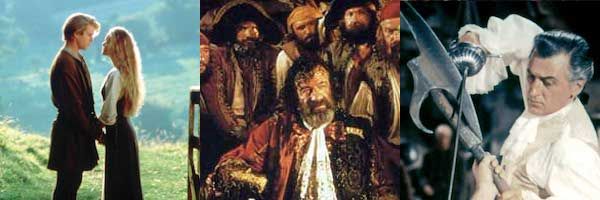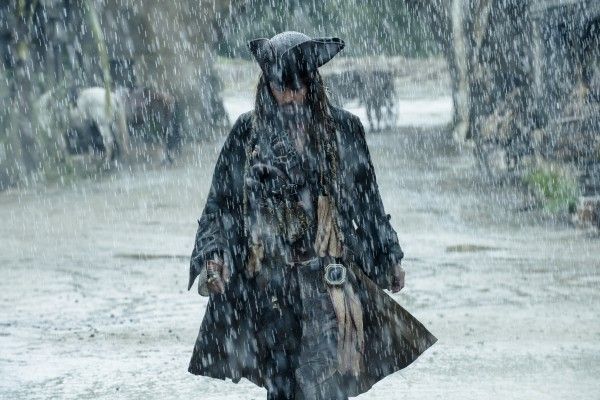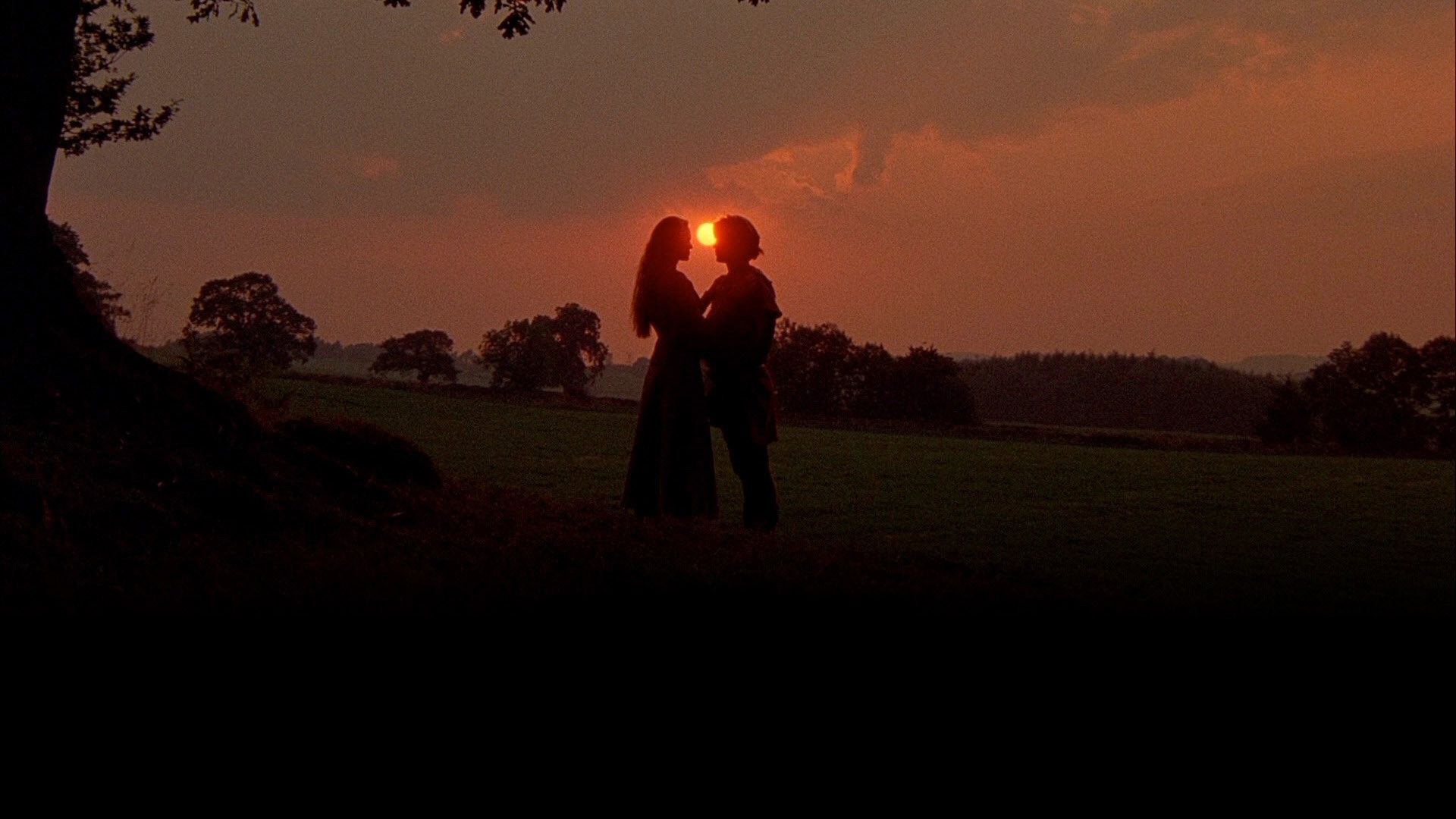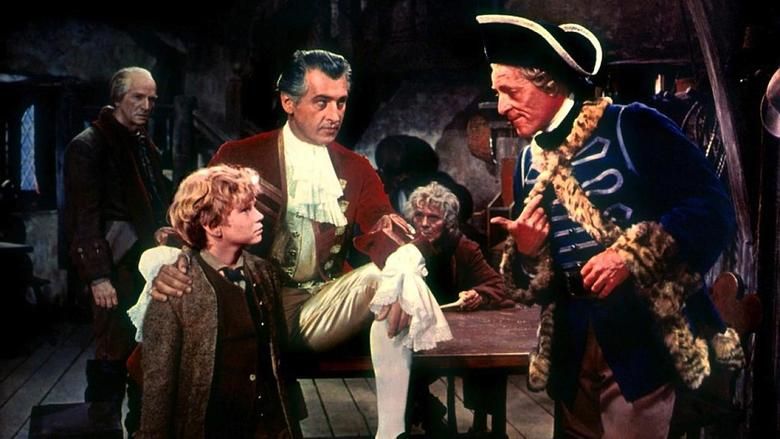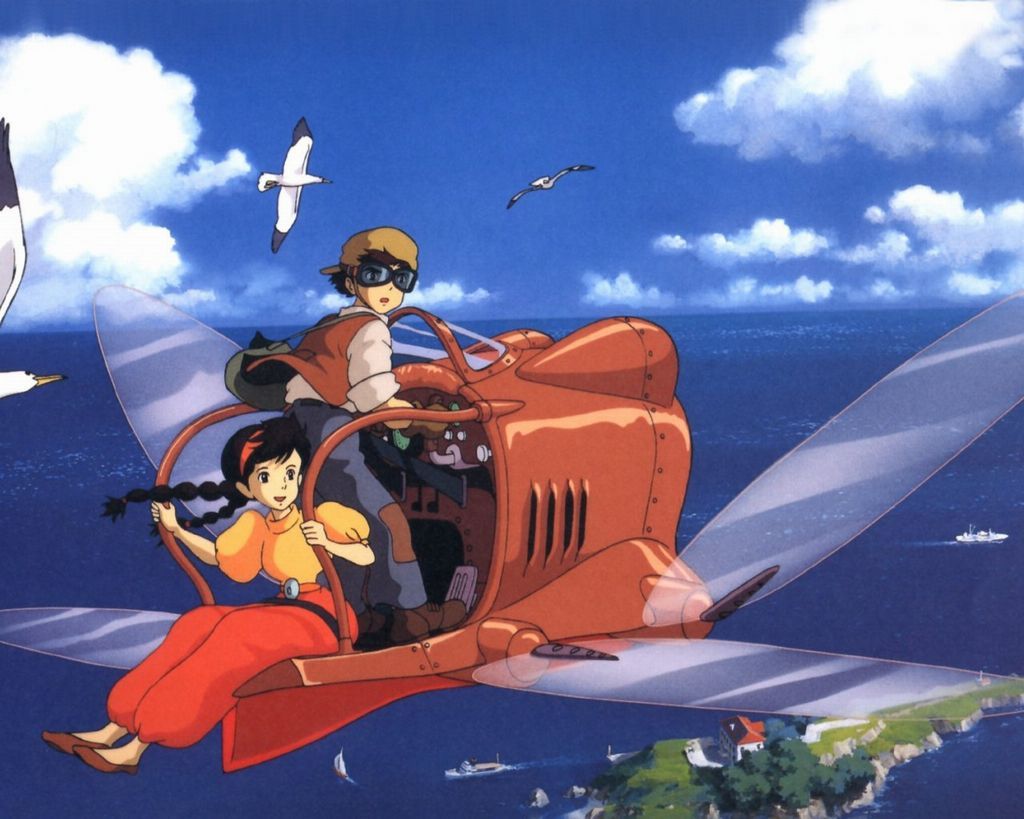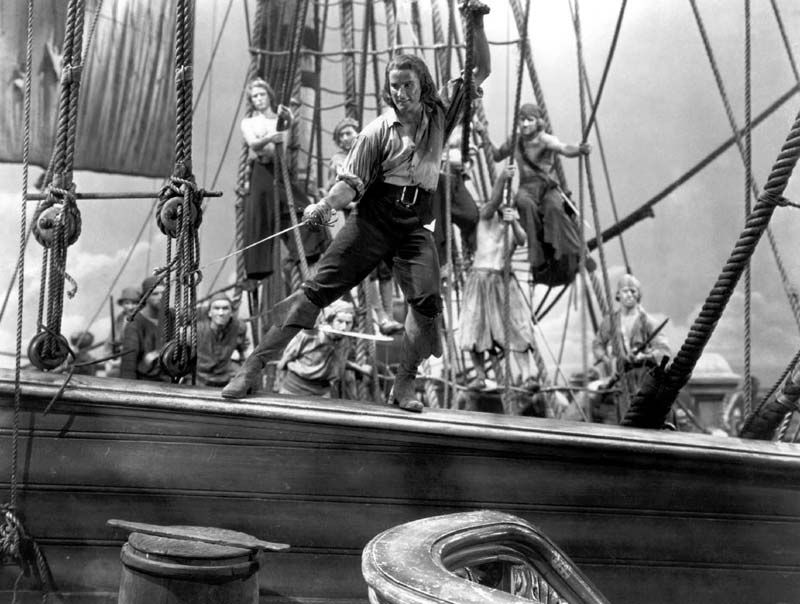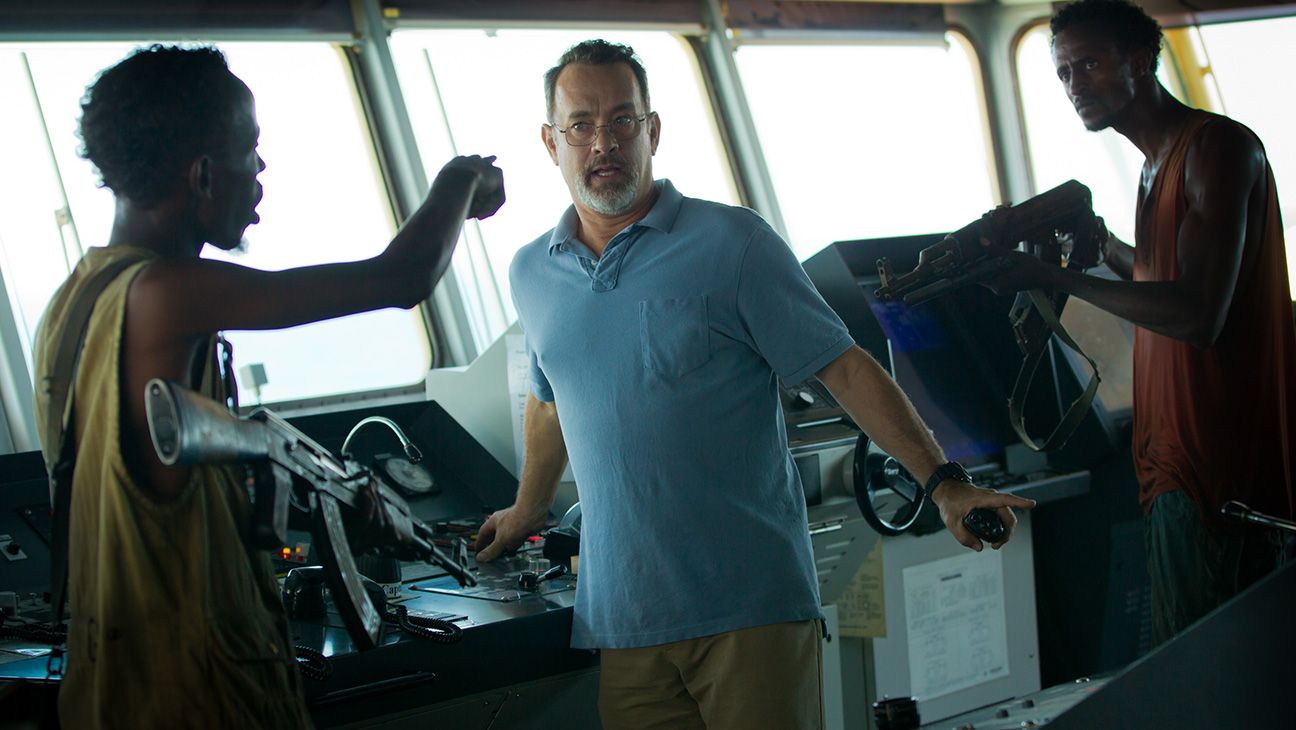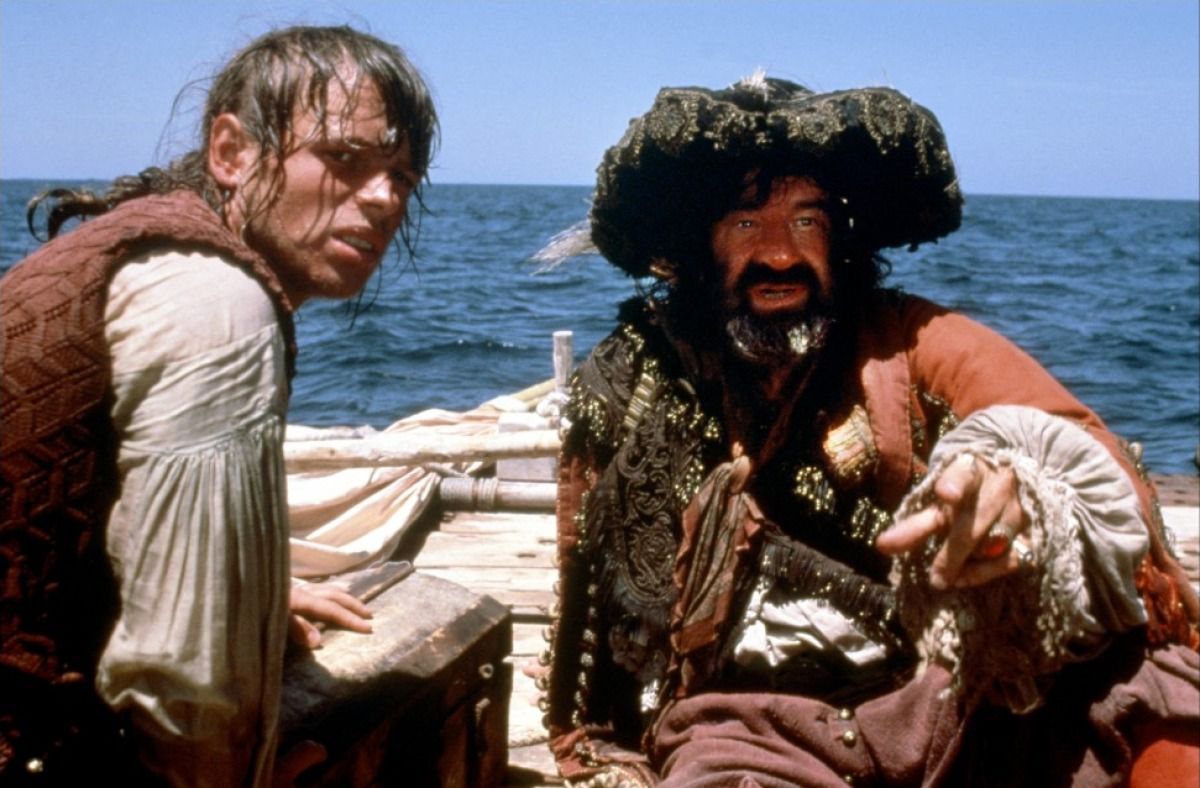One of the more understandable joys of the Pirates of the Caribbean franchise is that it does in fact feel like a bigger, better version of the ride. The audience is plunged into a world where death doesn’t really exist in any tangible way, treasure and rum are available along with (and often in lieu of) glory, squid monsters and ghosts call for your blood, and you get to stick it to those shithead trading companies. Sure, Gore Verbinski and his creative team can throw in a romance plot for the unknown masses that demand it, but the hook of the movies is in the crafting and deploying of elaborate yet basic thrills via a litany of technological wizardry. There are people out there who will and often do defend the movie in other, more serious terms of dramatic substance and rebellious spirits. A select few of them have driving permits.
Pirates of the Caribbean occasionally makes allusions to the darker side of the life of pirating but every time it looks like Jack Sparrow has truly dicked somebody (or some thing) over, it’s revealed that he was playing the long con or that some celestial being has conspired for him to pay his moral debt in some all-important way. This tactic makes for plenty of good vibes and the veneer of a “darker tone” but the movies themselves suffer from tonal imbalance, a tonnage of backstory, and explanatory dialogue. They also require patience for Johnny Depp’s faux-drunk chicanery that evaporated from my being around the time the first Arcade Fire record came out.
There are, however, a number of great movies that look squarely at the moral tug of being a career criminal on the high seas without tipping over to unmerciful cutesy horseshit. Much like cowboys, the legacy of pirates is still primarily romanticized myths, ones that often evade confronting the amount of rape, murder, and cruelty that went into the trade. This isn’t to say that Michael Haneke or Gaspar Noe need to make pirate movies – if they do, I’m there regardless – but there are plenty of ways to bring the brutal business of being a pirate and the not-so-ignorable elements of society that can produce such thrill-seekers that don’t also involve a Kraken. Here are six pirate movies that should satisfy the skeptics as much as the would-be swashbucklers.
'The Princess Bride'
In adapting William Goldman’s fantastical novel, Rob Reiner was blessed with a script by Goldman himself, which gave the filmmaker the perfect blueprint for his fantasy world of pirates, giants, swordsmen, trolls, and princesses. To underline the theatrical world of Princess Buttercup (Robin Wright) and Westley (Cary Elwes), Goldman and Reiner open the movie with a framing device that allows a reflection of the adaptation process, skipping over parts and omitting other bits along the way. Still, it’s the power of Reiner’s vision – words I’ve never written before – that gives the film genuine life. He paints the life of a pirate as pure wondrous romance and treats death as a constantly alluring gamble rather than a serious conclusion to life. There’s no grave, mortal stakes to The Princess Bride the way that Pirates of the Caribbean insists that there is a real point to be made underneath the layers of nonsense. Rather than overburdening itself with rigid morality, The Princess Bride flies freely under the wings of pure invention, thanks to Reiner’s seemingly effortless ability to shape a world of dazzling images and characters of engaging, even moving depth.
'Moonfleet'
This isn’t exactly a swashbuckler but deserves its place here nonetheless. Fritz Lang’s surprisingly thoughtful adventure film focuses on young John Mohune (John Whitely), who arrives in the titular village in Dorset in search of his lineage and a place to live after his mother’s untimely passing. What he finds is a bloodline entangled with rampant, violent piracy and murder, and ends up partnering with Stewart Granger’s Fox, a smuggler and pirate by trade, to track down a fabled diamond in a nearby castle. The familiar kicker is that Fox may very well be young Mohune’s father and this only further highlights Lang’s unsentimental yet highly perceptive depiction of parenting, legacy, and fate. Young Mohune could very easily become as craven and capable of murder as Fox without direction, but even in his detached way, Fox helps point him toward a more rewarding path. He’s also, of course, a symbol of the mythological fathers that many abandoned boys found in fantasy and adventure novels and Lang is smart to slightly subvert the happy ending that seems inevitable throughout. That Moonfleet still plays very well as a kids movie, over 60 years after its initial release, should say all that needs to be said about the importance of having a director of vision at the helm of any movie, no matter the constraints of genre.
'Laputa: Castle in the Sky'
Amongst Hayao Miyazaki’s long line of masterworks is this early sensation. After young Sheeta, voiced by Keiko Yokozawa, is taken by a band of governmental agents on a huge flying ship, she’s intercepted by a cadre of air pirates, led by the great Captain Dola (Kotoe Hatsui), in search of treasures. In the ensuing skirmish, Sheeta both realizes the immense power of her beloved amulet and escapes to partner with Pazu, a young man from a nearby mining town, to figure out why the agents want her powers. Miyazaki’s animation style, his expressive yet unflashy use of color, and brilliant character design are enough to marvel at on their own but he brings the firepower as well. Castle in the Sky features some of his best action sequences, in the same exalted realms of Porco Rosso and The Wind Rises, and when Sheeta and Puza team with Dola, one can feel the youthful promise of outlaw life rekindled for a moment. If The Princess Bride buttressed its sense of adventure with romantic love, Castle in the Sky sees the adventurism of pirate life as a gateway to independence and self-knowledge, separated from the task of finding someone you love romantically. Indeed, the excellence of Miyazaki’s first big domestic hit is in its ability to engender a feeling of leadership without ego, cooperation without the oft-sought compromise of the individual.
'Captain Blood'
Errol Flynn paired with the great Michael Curtiz on this spectacular adventure film and helps bring out the most charismatic qualities in Curtiz’ imagery and Casey Robinson’s script. Here, the Robin Hood star plays a doctor who becomes a pirate after his treatment of an injured enemy combatant banishes him to enslavement and a likely death. Based off of Rafael Sabatini’s beloved novel of the same name, Curtiz’s film fits into a familiar frame of a good man only finding refuge in the world of outlaws but much like John Ford’s Westerns, its in the sense of community that Blood strikes up with other criminals and wronged men that gives the film its most potent thrills. That goes for Blood’s romance with a woman of royalty (Olivia de Havilland) as well. The focus is not on the heroics or inherent goodness of Blood but rather his ability to connect, inspire, and work with others, talents that massively outweigh a boastful sense of accomplishment any day.
'Captain Phillips'
Here’s where one has to consider the pejorative nature of the label “pirate.” Paul Greengrass’ anxious, thrilling attempt to recreate the actions that led Tom Hanks’ Richard Phillips to turn over control of the MV Maersk Alabama to a group of Somali pirates, led by Barkhad Abdi’s Muse, is smart to take an (arguably too-brief) look at the world that created these pirates. The rampant poverty, desperation, and hunger for both power and genuine sustenance is laid out before Muse heads off toward his meeting with the Maersk Alabama crew and it gives the film something of an even moral keel. Phillips comes from a place where a major worry is what school your kids will end up at; the children that Muse sees in his nation are fighting just to not starve to death. So, when Abdi’s clever leader puts a gun in the face of Phillips, there’s never a sense of action-movie pomp and by the time the engines of the plot start really pumping away, its clear that the movie isn’t just about surviving an armed, widely politicized hijacking. It’s about survival period.
'Pirates'
This, to me, is where a lot of Pirates of the Caribbean comes from. Walter Matthau is an old, greedy, merciless pirate, stranded on a raft with no food or clean water alongside a French heartthrob. They serendipitously stow away on a grand ship where the captain is at death’s door and his ruling-class underlings are the subjects of a buffoonish uprising spurred by Matthau’s self-serving swashbuckler. Directed by Roman Polanski, it’s easy to see this as an act of playful classicism for the infamous filmmaker but Polanski highlights personal issues by focusing on the will to survive and the corrupting & galvanizing elements of desire. The director sees himself as both the old man looking for his fortune and the young man who wants glory and women, things that Matthau’s scallywag has already had and doesn’t care for anymore. Though not as astonishingly revealing and intimate as his previous film, Tess, or as uniquely perverse as its follow-up, Frantic, Pirates remains a crucial part of one of the greatest of all filmographies, a bromidic treatise on the life of a man who depends on taking (and often not paying back) money to live and create done up in adventure-picture drag.

